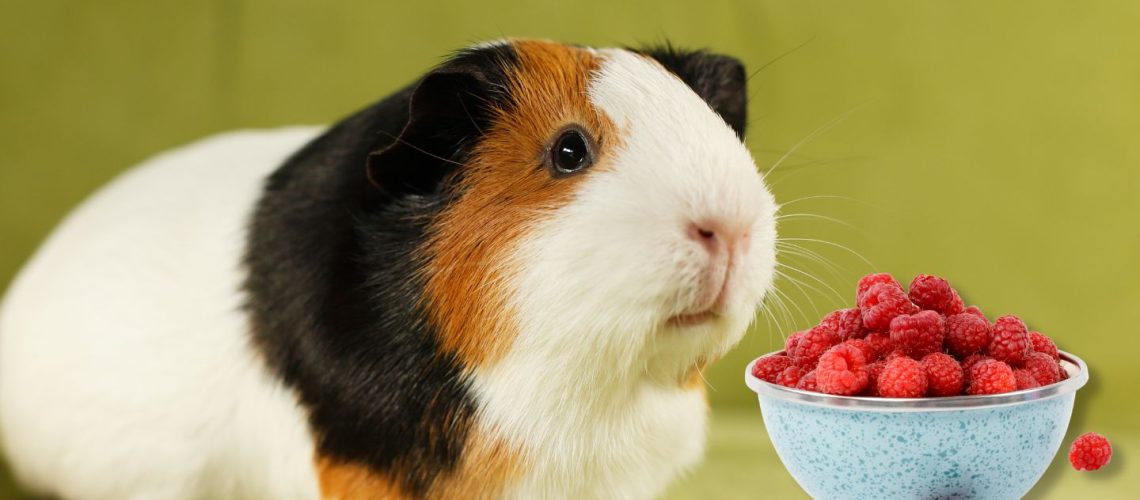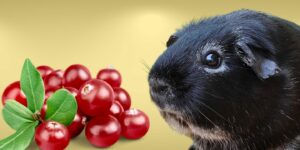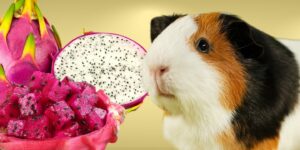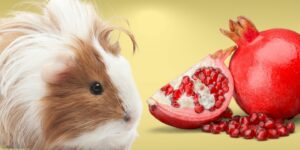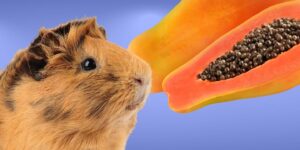The short answer is yes, guinea pigs can eat raspberries. However, like all fruits, raspberries should only be fed to guinea pigs in moderation as part of a balanced diet. Ensuring a balanced diet is essential for maintaining the health and well-being of these popular pets.
Nutritional Content of Raspberries
Vitamin C content
Raspberries are a very good source of vitamin C, an essential nutrient for guinea pigs because they are unable to produce it on their own. Vitamin C is crucial for maintaining a healthy immune system and preventing scurvy, a life-threatening condition for guinea pigs.
Other vitamins and minerals in raspberries
Aside from vitamin C, raspberries also contain small amounts of other important vitamins and minerals such as vitamin E, potassium, and magnesium. These nutrients further contribute to maintaining your guinea pig's overall health.
Antioxidants and phytonutrients in raspberries
Raspberries are also rich in antioxidants and phytonutrients that can help protect your guinea pig against cellular damage and disease.
Health Benefits of Raspberries for Guinea Pigs
Boosting immune system
The high vitamin C content in raspberries helps boost the immune system of guinea pigs, supporting their ability to fend off infections and illnesses.
Maintaining healthy skin and fur
The vitamins and minerals in raspberries promote healthy skin and fur, keeping your pet looking its best.
Supporting overall health and well-being
The nutrients present in raspberries contribute to the overall health and well-being of your guinea pig while also providing a tasty treat.
Potential Concerns with Raspberries
High sugar content
The impact of sugar on guinea pig's health
Although raspberries offer several health benefits, they also have a high sugar content. Consuming too much sugar can cause gastrointestinal upset and contribute to obesity in guinea pigs.
Seeds and choking hazard
Raspberry seeds may pose a choking hazard, particularly for smaller guinea pigs. Monitor your pet closely when feeding raspberries to ensure their safety.
Raspberry leaves and digestive issues
Feeding raspberry leaves to your guinea pig could cause digestive problems. It is best to stick to the fruit and avoid giving your pet the leaves and stems.
Feeding Guidelines for Guinea Pigs
Portion size for raspberries
When feeding raspberries to your guinea pig, it's important to limit the portion size. A good rule of thumb is no more than a few pieces per day, depending on the size of your guinea pig.
Frequency of feeding raspberries
Raspberries should be fed to your guinea pig in moderation as part of a varied diet. Offer raspberries no more than twice a week, alternating with other fruits and vegetables.
Alternating raspberries with other fruits and vegetables
Recommended fruits and vegetables for guinea pigs
Providing your guinea pig with a variety of fruits and vegetables is essential to ensure they receive all the nutrients they need. Some other appropriate fruits and vegetables include bell peppers, kale, cucumber, and blueberries.
Tips for Feeding Raspberries to Guinea Pigs
Washing and preparing raspberries
Before feeding raspberries to your guinea pig, make sure to thoroughly wash the fruit and remove any debris.
Introducing raspberries to your guinea pig's diet
Introduce raspberries slowly to your guinea pig's diet, starting with small amounts to avoid upsetting their digestive system.
Monitoring your guinea pig's reaction to raspberries
Pay close attention to how your guinea pig reacts to raspberries. If they develop any adverse reactions, stop giving them the fruit and consult a veterinarian.
Frequently Asked Questions
Can guinea pigs eat frozen or dried raspberries?
It's best to feed your guinea pig fresh raspberries. Frozen raspberries should be thawed before feeding and dried raspberries could contain additives and preservatives that may be harmful to your pet.
Are there any fruits and vegetables that guinea pigs should avoid?
Yes, guinea pigs should not eat certain fruits and vegetables, such as avocado, iceberg lettuce, and grapes, as they can cause health problems.
Can guinea pigs eat raspberry leaves or stems?
Raspberry leaves and stems can cause digestive issues for guinea pigs. It is best to avoid feeding these parts of the plant to your pet.
Conclusion
In conclusion, guinea pigs can safely eat raspberries in moderation as part of a balanced diet. However, it's important to avoid feeding too much, as raspberries are high in sugar and the seeds and leaves can be harmful to guinea pigs. By following these guidelines and providing a varied diet, you can help keep your guinea pig healthy and happy.

